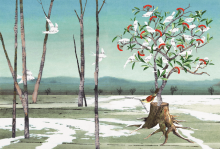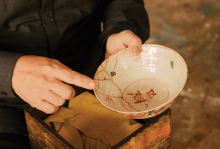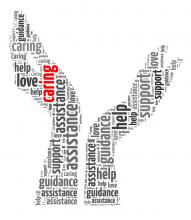tears

Many of us have made homes in religious traditions where we have found collective love, care, community-building, and resilience. But so much of what passes as spiritual in the United States — churches who only see their work as therapeutic, prosperity gospel proponents, white evangelical nationalists, New Age movements — is commodification by other means. John warns us against false prophets who, through quick fixes and distorted spiritual comforts, foster division and confusion in the service of lucrative self-aggrandizement.
I am an ordained minister in the Fellowship of Affirming Ministries, and I work as a movement chaplain in Los Angeles. I was trained as a spiritual director, and I have been doing ministry with faith-rooted activists since 2016. My work is informed by my primary training as a medical anthropologist and community researcher. I know that Jesus said that we humans are of more value than many sparrows, but I’ve found that we are a lot like them. We need refuge and sustenance. We need shelter. We need to nest somewhere. But with whom shall we do this for the short and long haul? And where shall we build our nests?

Artist Makoto Fujimura uses materials and techniques from nihonga, a Japanese style of painting. The pigments are pulverized minerals and precious metals applied in multiple layers, in what he describes as “a slow process that fights against efficiency.” Prayer and contemplation are woven into the work. The tiny mineral particles refract light, often creating subtle prismatic effects. It is a style of art made for the type of long, unforced gaze that slowly reveals evermore depth. Deceptively simple and quietly extravagant.
Fujimura’s thoughts on art, theology, and culture are, like his paintings, many-layered and refractive, celebrating God as love, beauty, and mercy while also contending with pain and desolation. He is a mystic as well as a painter, and in his latest book, Art and Faith: A Theology of Making, he speaks out of his spiritual and his artistic practice.
But Fujimura also builds on three decades of reaching far outside his studio to evangelize on the necessity of art for human thriving and the call to shift from fighting over culture to caring for and nurturing it. He founded the International Arts Movement in 1992, which facilitates connections and communication between groups seeking to creatively and positively impact the culture, whether they are from the arts, music, business, education, or social change organizations.

THERE ARE DAYS, to tell the truth, that you just have to wonder if it’s worth it to try to live in community. It’s sort of like marriage and family life: It’s a great idea, but the reality requires more blood, sweat, and tears than anybody ever told you about ahead of time. And sometimes you just wonder.
You stir a soup pot, and it seems there are always more hungry people at the door. You open the shower line, but more hot, sweaty, dirty bodies appear the minute you’ve finished. You visit the prisoners, but for every visit there are five more unaddressed needs. You work to devise strategies to stop the death penalty, and the state just sets another execution date. You sit down to pray, but the cacophony of your thoughts and feelings won’t lie still long enough to get through a simple “Lord, have mercy on me, a sinner."